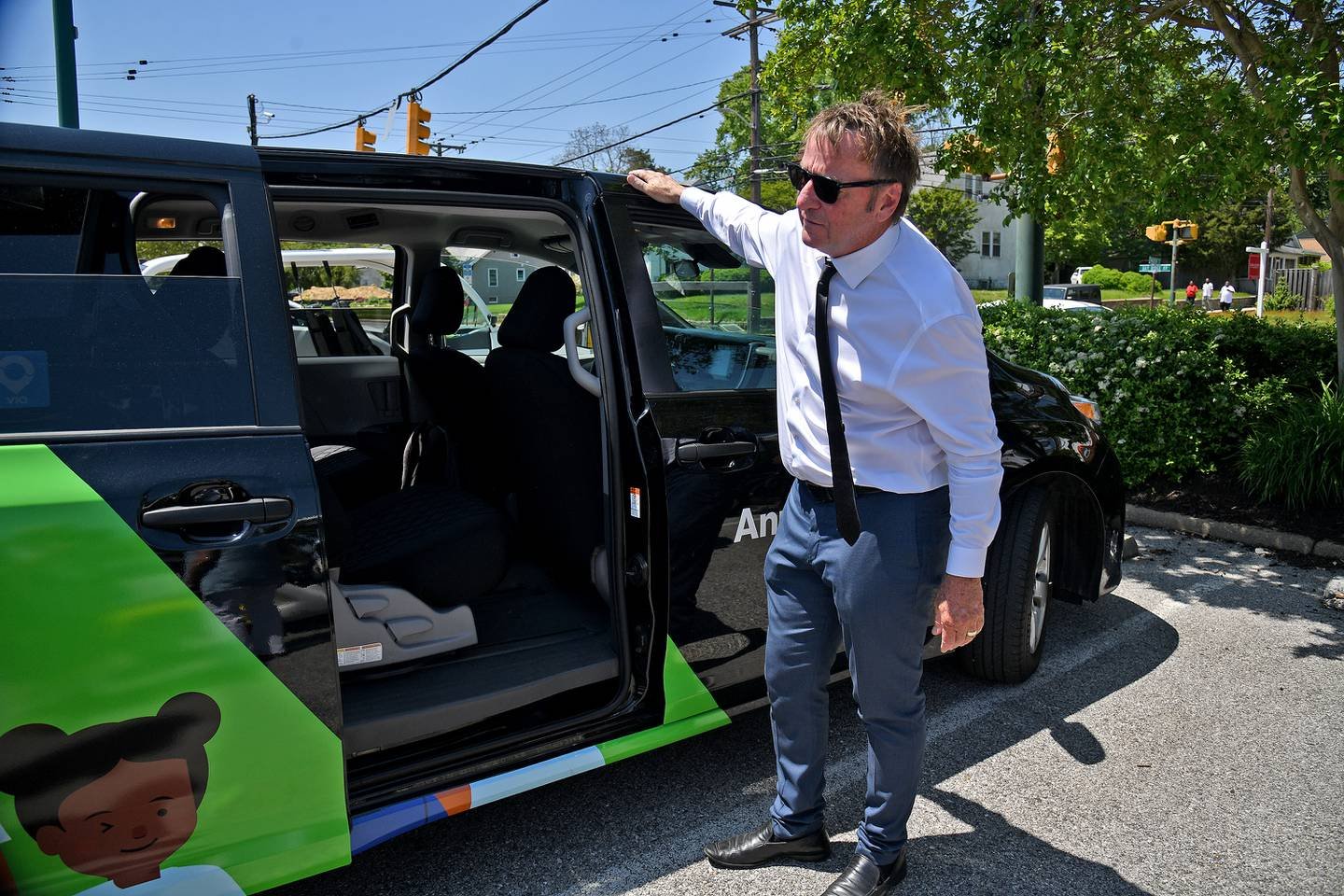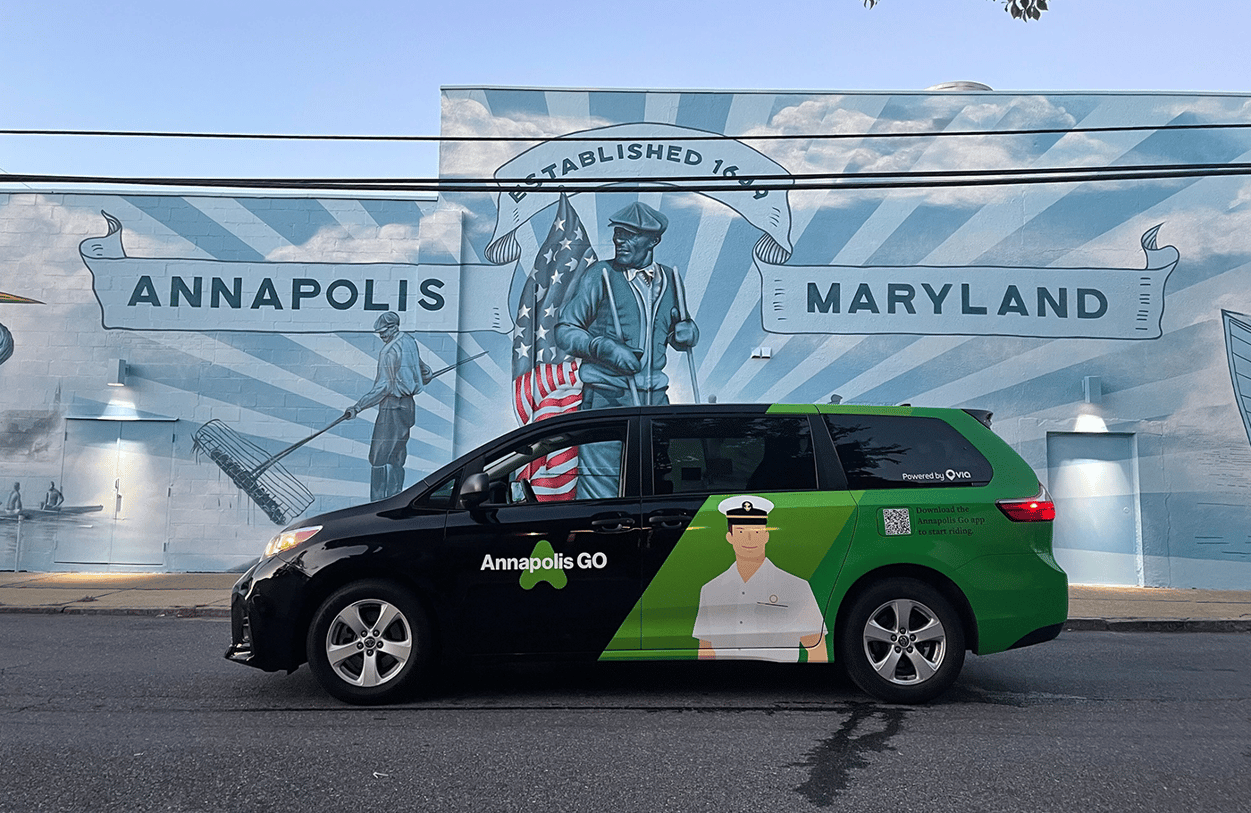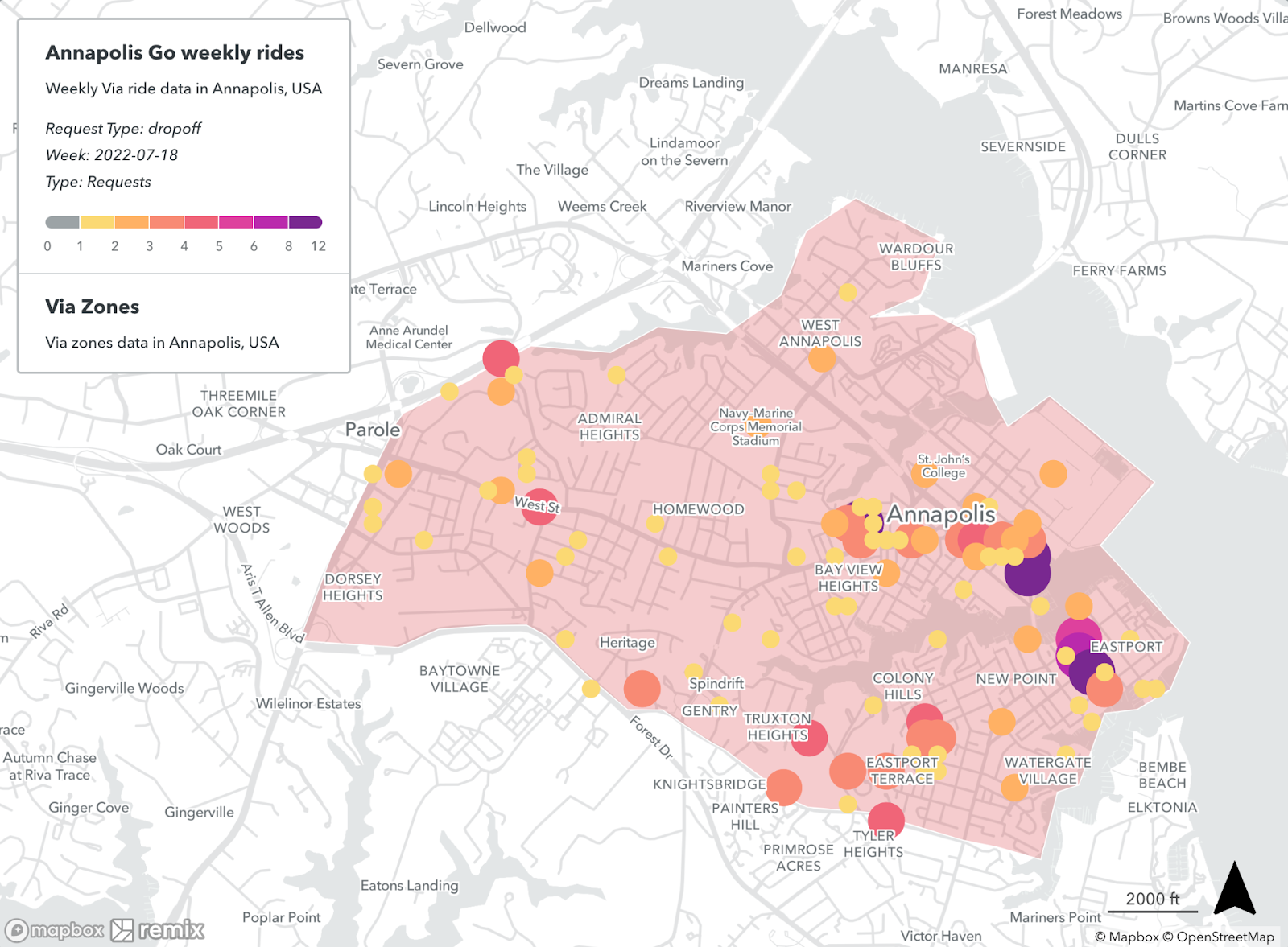Annapolis is a unique American city. It was settled nearly 400 years ago, and at that time, was built to scale for humans who walk or get around on horseback. That scale is part of the city's enduring charm and make it a top tourist destination, but it can sometimes prove problematic in the modern era where most residents and visitors — more than 90 percent — get around in single-rider automobiles. The parking and traffic issues this has caused don’t lessen the charm of this historic City, but they do provide challenges for drivers.
In early 2022, the city began a 14-month demolition and construction project of our main downtown garage, taking 400 parking spaces off-line. While this was viewed by most as a problem, the City leadership looked at it as an opportunity to test alternative transit options. One of those options is Annapolis GO!, operated by Via. Annapolis GO is a shared mobility option that offers patrons flexibility and convenience.
A new, flexible way of moving around.
Annapolis GO isn’t the only option in the city's alternate transportation portfolio. In compensating for the garage closure, Annapolis introduced a range of options, including scooters, e-bikes, a downtown shuttle service, and the on-demand public microtransit service, Annapolis GO For just $2, anyone — including riders requiring wheelchair-accessible vehicles — can book a trip through a custom, city-branded app or by calling the dispatch center, and get picked up and dropped off anywhere in Eastport or greater downtown.
Annapolis GO is one component of a revamped car-free mobility ecosystem with multiple modes available to riders: it complements the City’s fixed-route options — the new Magenta Shuttle and electric tram, and the fixed-route buses that serve other parts of the City — to offer a more flexible and responsive option. The idea is to take the closed Hillman Garage as an opportunity to encourage new mobility habits for residents, build on the recommendations of the City’s most recent transit development plan — and make mobility part of the fun when people visit Annapolis. To introduce residents to their new mobility options, the City worked with Via, along with other operators, to put on a showcase event in May 2022. Via co-hosted the event so that residents got the opportunity to experience this new transit technology in real life. Via’s app uses intelligent algorithms to match multiple riders headed in the same direction to provide quick and efficient shared trips, without the fixed schedules or routes of traditional public transit.

Annapolis mayor Gavin Buckley rides Annapolis GO in the showcase event. Credit: Paul W. Gillespie/Capital Gazette
Communities embracing Annapolis GO.
Within just two months, Annapolis GO's popularity has swelled as local residents have enjoyed the new flexibility of moving around car-free. People have taken over 1.7k rides, with an average wait time of just 10 minutes and rider ratings as high as 4.9/5. As one rider puts it, “Never a long wait… this is my favorite way to commute home.” Weekly ridership in July has increased by 110 percent compared to May, and this growth momentum is getting even stronger as the city’s tourism season is in full swing.
Downtown business owners, likewise, especially appreciate the flexible nature of the new service. Though it can be difficult to quickly update fixed-route schedules to accommodate new demand patterns, on-demand services can easily update their hours. In early August, the city expanded both nighttime and weekend hours of Annapolis GO for workers in the downtown areas, as well as local residents and visitors. Evening trips between 5 pm to 8 pm now make up over half of all requests.
Annapolis GO ridership, as mapped in Remix. Most riders originate from the riverside and south sides of Annapolis, with top destinations being key entertainment/shopping/business districts.
Ridership data also points to strong entertainment/leisure purposes for using this transit service, with top destinations including Annapolis City Dock and nearby restaurants and bars, Annapolis Waterfront Hotel, residential communities near Market Quay, Bay View Heights, and St. John's College and local businesses in Eastport and New Point.
Lessons for cities looking to rebound.
The success of Annapolis GO provides a blueprint for integrating on-demand microtransit into public transit to solve long-term parking and traffic headaches that hinder economic growth. When cities and governments look to support the growth of the local business, they need to ensure reliable and flexible transit in and around their business districts, accommodating people’s travel habits of taking shorter but more frequent trips for daily errands or entertainment in that area.
If done right, tech-enabled microtransit can achieve just that — with its flexible routing and schedule, and seamless riding experience customized to cater to people’s unique needs. Thanks to mobility innovations, the city of Annapolis is paving its path toward greater economic development and improved quality of life for everyone in and around its community.





